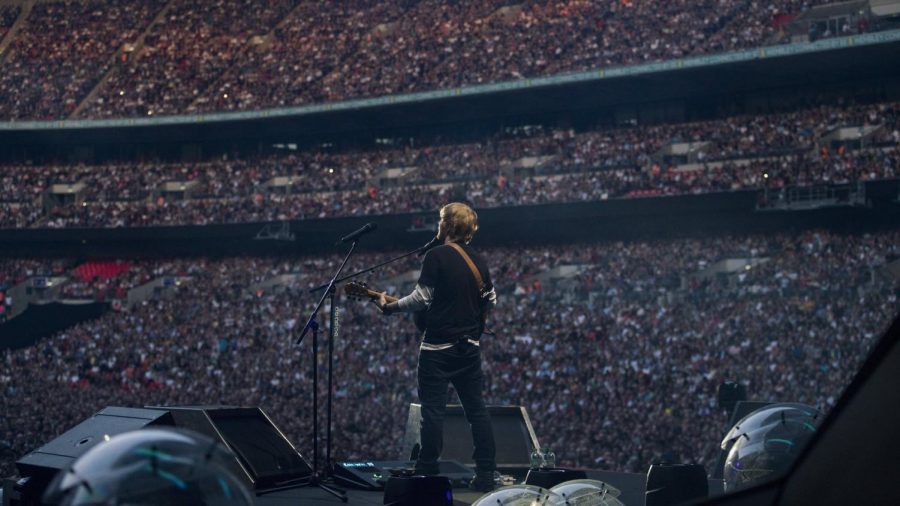Covid-19: What have lockdowns and restrictions meant for musicians?
Ed Sheeran at Wembley Stadium in 2017
Over the past year and a half, we have all watched helplessly as the live music industry, theatre, and all performance arts have slid into an ever-deepening hole. With music venues under heavy restrictions or even facing closure, and touring at all levels stopped in their tracks, most musicians have not earned a single penny since the COVID 19 breakout. Financially, this has had a devastating effect on most artists and I’m not sure that we will ever be able to measure the resulting issues that will continue to grow from the varying levels of lockdown.
Musicians are among the most economically jeopardized by the current pandemic. When Covid-19 started to threaten our health in early 2020, it forced concert venues around the world to close, tour schedules to collapse, leaving bands and musicians scrambling to make ends meet. It’s not only the musicians themselves who are affected by the pandemic, but the concert industry also stands to lose billions and individual artists may be forced to leave the industry.
A project by Queensland Conservatorium Research Centre Director, Professor Brydie-Leigh Bartleet, concluded that the music industry had been among the most heavily impacted by COVID-19 and explained why it could be the slowest to recover. According to the report findings, most musicians are self-employed or in temporary employment, with performance being the most commonly reported source of income. Online music streaming has also continued to supplant record sales and other traditional sources of income, so musicians have been forced to rely more and more on unending touring schedules. The death of live music left many artists with little or no way to support themselves while threatening the existence of the “middle-class musician” itself.
The pandemic has left musicians’ income strictly dependent on streaming, which for some not-so-famous artists, is not enough to make a living out of making music. “In the last several years, streaming revenue has increased, but it is still not enough on its own to financially support a career with longevity,” said Erin M. Jacobson, a music-industry lawyer in Beverly Hills. A study conducted by the news website Music Business Worldwide found that of the more than 3 million artists on Spotify, only 13,400 generated over $50k in payouts in 2020, which is considered by the US Bureau of Labor Statistics (BLS) the median wage for workers in the United States. This means less than 1% of musicians on Spotify are able to make a living off streaming only.
Because of this, during 2020 many artists chose to diversify their sources of income expanding to things like merchandise, social media and some even chose to do online concerts. Artists have also started other sources of revenue like sync licensing (for example, when an artist sells the right to play their song on a T.V. show, or in a movie or video game), and side-businesses, like fashion lines, as well as partnerships with brands.
Many creative-minded musicians have used the lockdown as an opportunity to explore more online opportunities to engage and build their fan base and even find new ways to earn some much-needed cash. Some have chosen to spend their time writing new music and realizing new albums while some have chosen to diversify as creators.
At the same time, people around the world have turned to music to help them through the crisis. From balcony-based sing-alongs to massive global broadcasts, music has become embedded in our responses to disrupted lives. With creators and lovers of music depending incredibly on it, a wide range of approaches to making, sharing, and experience music have arisen. Some creative artists used the pandemic as a way to innovate in the music industry and succeed like 17-year-old singer-songwriter Olivia Rodrigo, who during this quarantine managed to become the world’s biggest pop star, with the release of more than 10 songs, one of which broke Spotify’s record for most streams in a week.
With the current situation around the world, the current state of the music industry, and what artists stand to gain, is on standby. Since April 2020 there hasn’t been a single major concert around the world however, artists like Billie Eilish, Justin Beiber, and Bruno Mars have already scheduled tours from early 2021 on. It’s been rough for musicians this past year and a half as they’ve had to adapt, overcome and suffer immensely, however, there is finally light at the end of the tunnel at hopefully everything will be back to normal soon.




